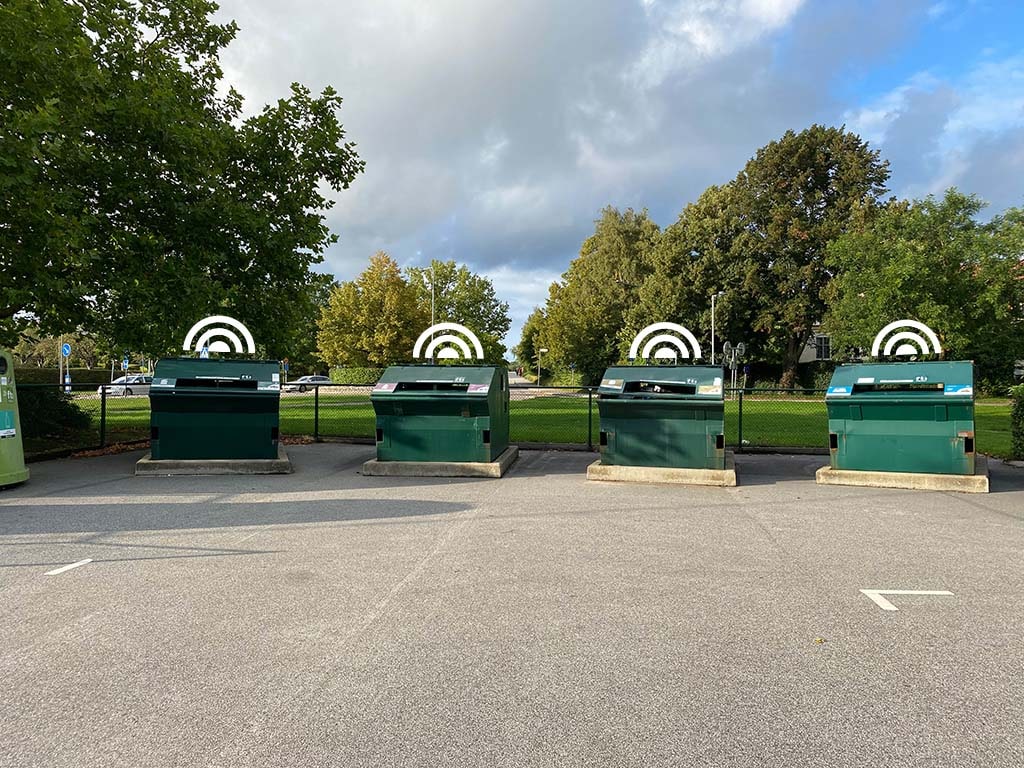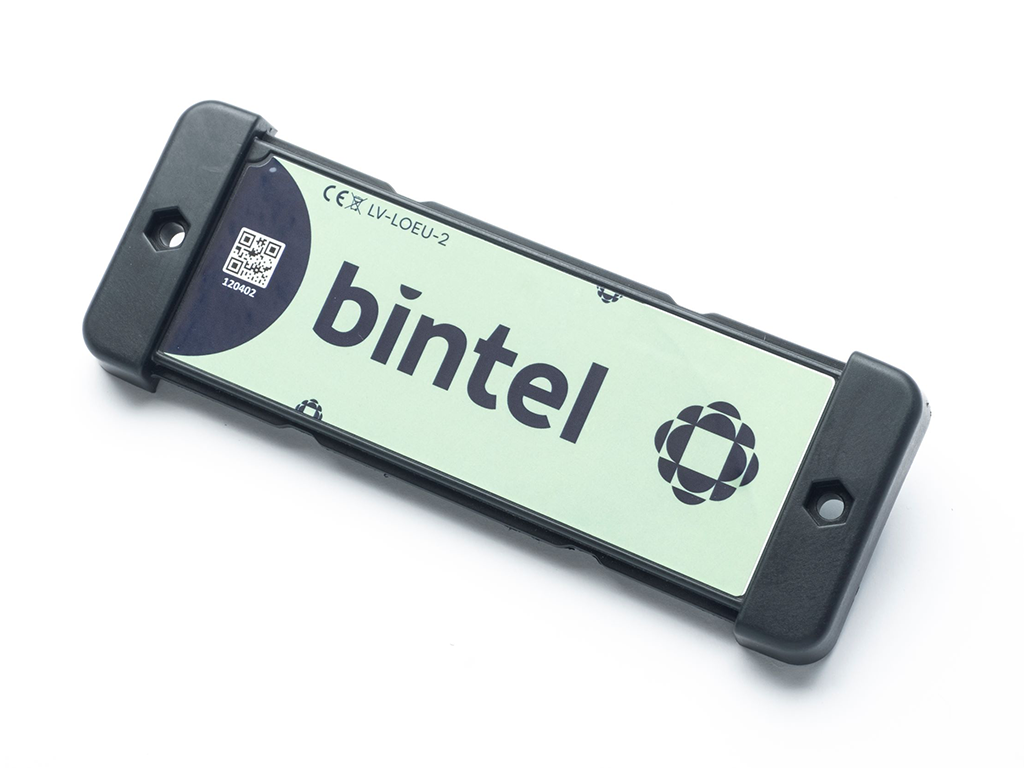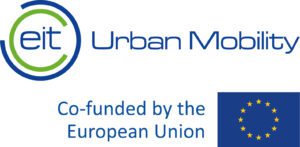-"Managing collection in a sustainable way is one of the foundations of our mission, and here we believe there are many opportunities around digitalisation, including smarter sensors, AI and integrated logistics planning/optimisation. The project together with Bintel is one of the efforts we are making to explore the way forward and develop a long-term and sustainable collection system, says Daniel Jacobsson, at FTI.
Most people can relate to the frustration of being confronted with a recycling station that has not been emptied on time. Furthermore, containers that are emptied too early are also problematic, as they involve unnecessary transport, among other things. Emptying the right containers at the right time is thus a challenge for those who have to collect waste from our recycling stations.
When you look at the total amount of packaging collected from the outside, you realise quite quickly that it is something that is alive and changing. Every year, records are broken in Sweden for the recycling of packaging. This is probably an effect of both increased sorting and changes in consumption behaviour.
This highlights the importance of flexibility in waste collection, as the picture is not static but constantly changing.
Below are statistics from FTI on the amount of packaging collected per inhabitant in Sweden.
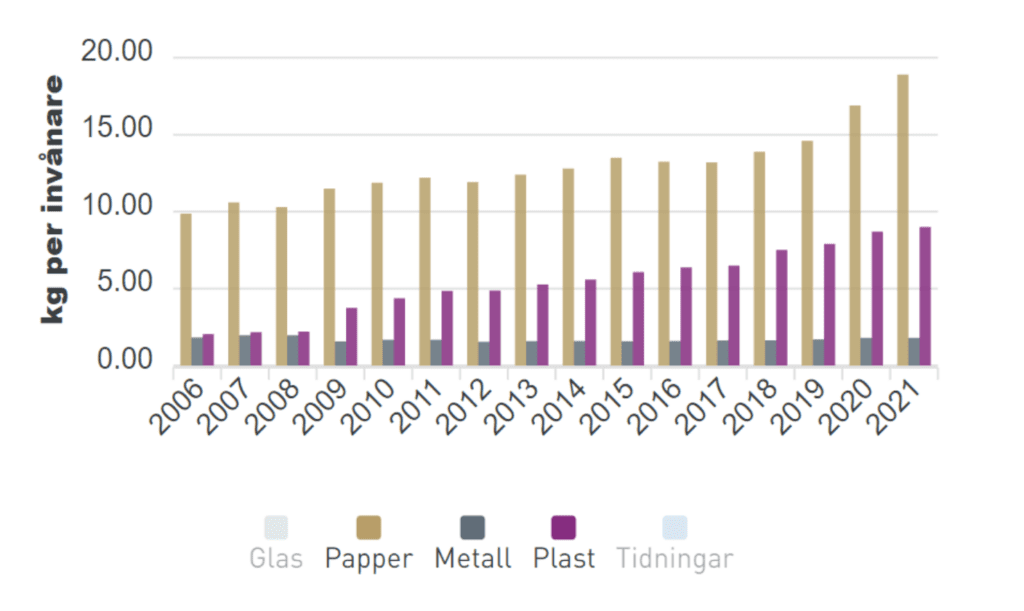
In the project, Bintel uses sensors to connect 1,300 containers around southern Sweden, with the goal of developing and introducing the future transportation model with the environment, economy and customer satisfaction in focus – so that the right containers can be emptied at the right time. A 'best practice' for the control, analysis and collection of waste from recycling stations;
Bintel has compiled data from thousands of containers, measured over a period of more than 1 year. The constant change in waste streams makes the results of this project interesting in many ways and several different insights have crystallized.
Background
FTI has thousands of recycling stations located in our long country, with the ambition that recycling should be simple and provide the greatest possible environmental benefit. Our customer puts a lot of resources into making the collection work, thereby inviting us users to be environmentally friendly and sort out our packaging. For example, the stations are cleaned almost half a million times a year, and the containers are emptied about 2,000,000 times.
Yet we have all been met by that overcrowded recycling station, sighing, closing the trunk and going home again with the car full of packaging.
This should not have to be the case, says FTI!
Transport needs
Generally speaking, the load on our recycling stations varies greatly between fractions and over the season. Today's static schedules have great difficulty responding to these variations.
The application is in principle tailored to demand-driven emptying, as it is often associated with long driving distances between collection points, as well as expensive and messy emptying processes.
There are several different approaches to setting up demand-driven collection from recycling stations, prioritising different areas and offering different flexibilities. The project has explored different parameters and the result is quite clear: no matter which data-driven collection method you use, savings will be achieved.
The project demonstrates a potential savings of up to 25% in driving distances if the collection is data-driven. Spread over the whole country's recycling stations, this would mean about 1.1 Mkm in reduced mileage annually. Converted to CO2 equivalents, this would mean a reduction of about 0.8 MTon annually in fuel alone.
Then there is the reduction in environmental impact due to reduced service needs and ultimately reduced need for heavy trucks for this purpose.
Littering
One problem, which the data clearly highlights, is that many containers remain overfilled for a very long time. This is one of the contributing factors to littering and poor well-being at our recycling stations.
With demand controlled emptying, in the context of reduced transport needs, there is thus a countervailing opportunity in reducing littering. litter equivalent to many thousands of cubic metres of packaging annually.
Thus, all things being equal, a data-driven collection system could radically reduce driving distances in Sweden and globally. Alternatively, some of this saving could be "switched" to addressing the collection of waste fractions that require more frequent traffic to function better than it does today.
The total potential for litter reduction associated with the FTI station in Sweden is estimated at approx. 20,000m3 of paper packaging and 2,000m3 of plastic packaging. This is based on simulations of data from different test areas in the project, which were then extrapolated to FTI's total stock.
The future of our recycling stations
A shift in collection responsibility is currently taking place from FTI to municipalities. Some shift of waste collection points will take place from recycling stations to more property-based collection, but to what extent and how this will be done in detail is still unclear.
It is clear that the takeover of the WAS will go much more smoothly if there is an understanding of how the municipality's new collection point works, or sometimes does not work. Answers are obtained by connecting and collecting data.
Do you have questions about how to make your new recycling station work best?

Make it easy to optimize pickup, increase degree of waste sorting and analyse improvement measures. Automatically easy!
Bintel Insights™ is the center for digital insight-driven innovation. waste management
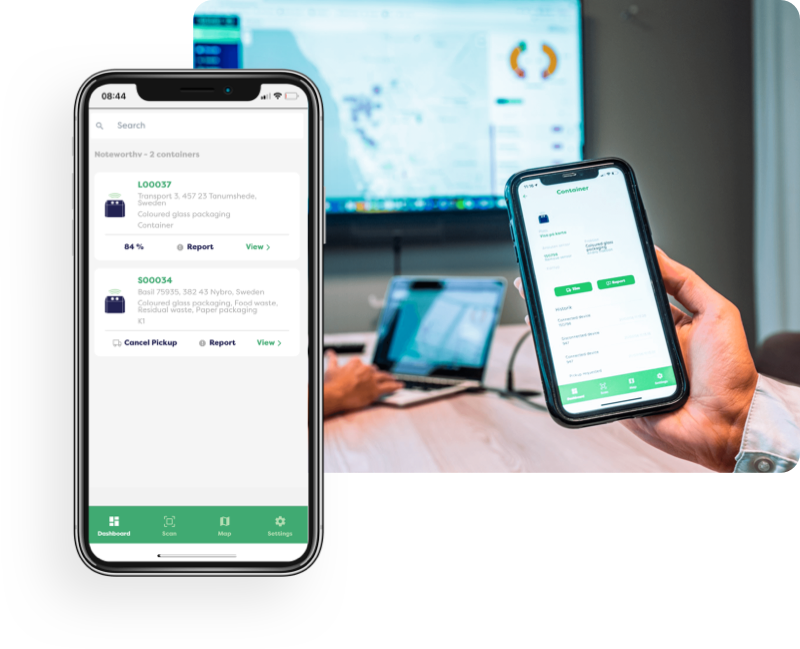
We want to streamline waste management thereby increasing circularity and improving resource utilisation.
